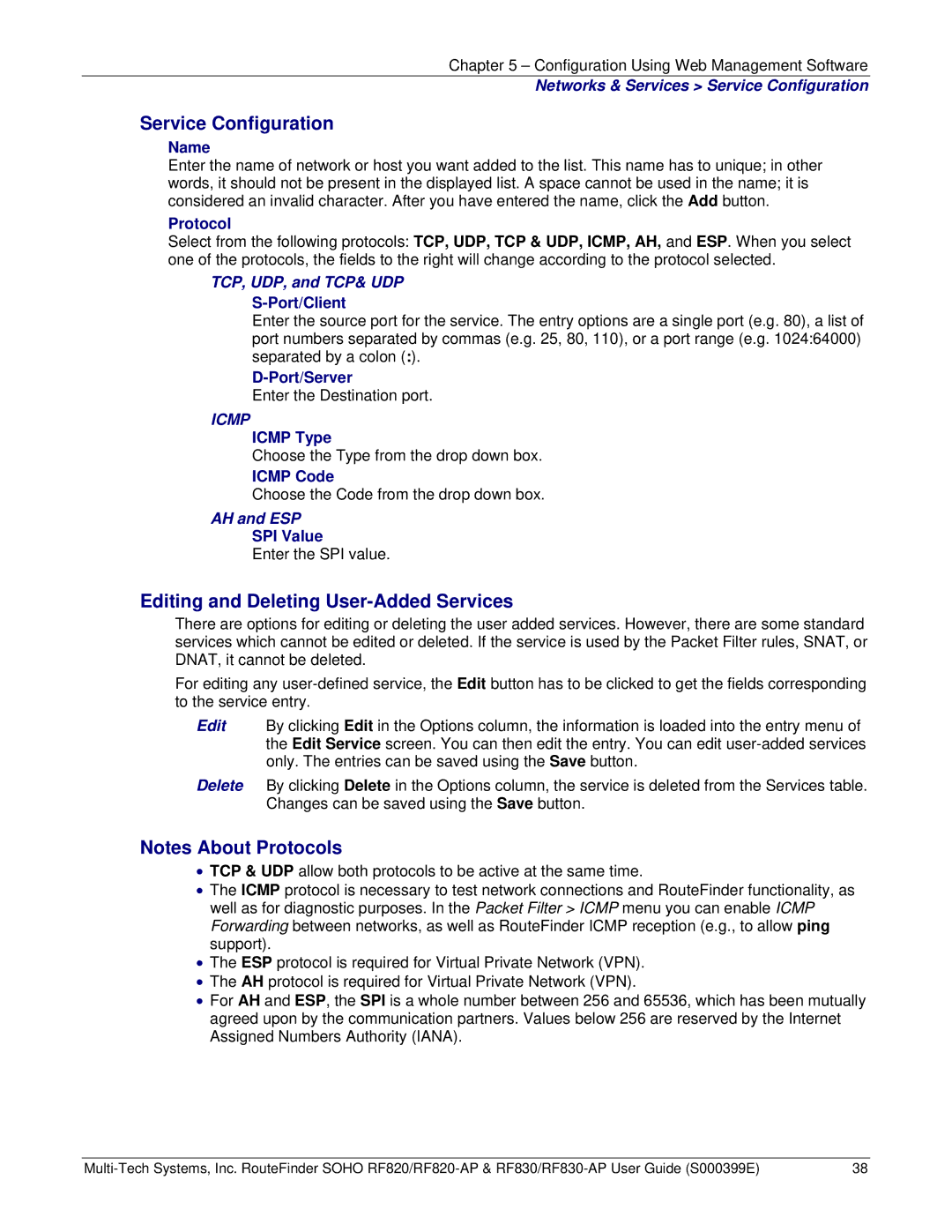
Chapter 5 – Configuration Using Web Management Software
Networks & Services > Service Configuration
Service Configuration
Name
Enter the name of network or host you want added to the list. This name has to unique; in other words, it should not be present in the displayed list. A space cannot be used in the name; it is considered an invalid character. After you have entered the name, click the Add button.
Protocol
Select from the following protocols: TCP, UDP, TCP & UDP, ICMP, AH, and ESP. When you select one of the protocols, the fields to the right will change according to the protocol selected.
TCP, UDP, and TCP& UDP
S-Port/Client
Enter the source port for the service. The entry options are a single port (e.g. 80), a list of port numbers separated by commas (e.g. 25, 80, 110), or a port range (e.g. 1024:64000) separated by a colon (:).
Enter the Destination port.
ICMP
ICMP Type
Choose the Type from the drop down box.
ICMP Code
Choose the Code from the drop down box.
AH and ESP
SPI Value
Enter the SPI value.
Editing and Deleting User-Added Services
There are options for editing or deleting the user added services. However, there are some standard services which cannot be edited or deleted. If the service is used by the Packet Filter rules, SNAT, or DNAT, it cannot be deleted.
For editing any
Edit By clicking Edit in the Options column, the information is loaded into the entry menu of the Edit Service screen. You can then edit the entry. You can edit
Delete By clicking Delete in the Options column, the service is deleted from the Services table. Changes can be saved using the Save button.
Notes About Protocols
•TCP & UDP allow both protocols to be active at the same time.
•The ICMP protocol is necessary to test network connections and RouteFinder functionality, as well as for diagnostic purposes. In the Packet Filter > ICMP menu you can enable ICMP Forwarding between networks, as well as RouteFinder ICMP reception (e.g., to allow ping support).
•The ESP protocol is required for Virtual Private Network (VPN).
•The AH protocol is required for Virtual Private Network (VPN).
•For AH and ESP, the SPI is a whole number between 256 and 65536, which has been mutually agreed upon by the communication partners. Values below 256 are reserved by the Internet Assigned Numbers Authority (IANA).
38 |
